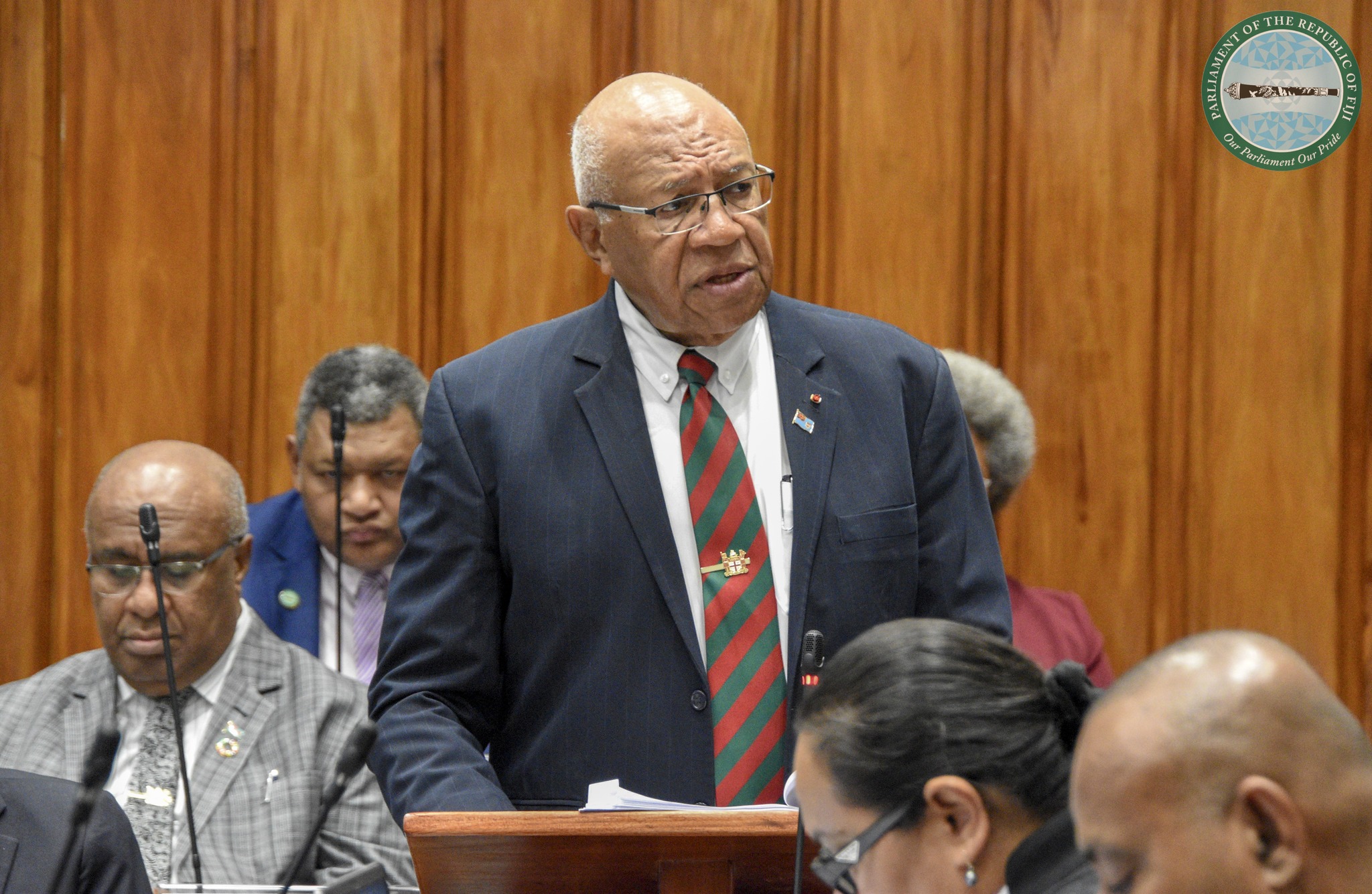Fijian Prime Minister Sitiveni Rabuka has set a new course for the country’s international relations with the unveiling of Fiji’s first-ever Foreign Policy White Paper, outlining the nation’s priorities on the global stage for the next decade.
In a ministerial statement to Parliament on Tuesday, Rabuka highlighted the document as a crucial milestone, marking a comprehensive strategy that integrates domestic and international policies to safeguard Fiji’s sovereignty, security, and prosperity.
“This White Paper is the definitive statement of our Government’s foreign policy and Fiji’s place in the world,” Rabuka told Parliament. “It outlines how we see ourselves and how we wish to present ourselves to the world.”
The Foreign Policy White Paper, developed through a six-month consultative process, provides the foundation for Fiji’s foreign relations, incorporating input from various stakeholders, including ministries, public agencies, and leading foreign affairs experts. Notably, Professor Peter Varghese, Chancellor of The University of Queensland and former Australian diplomat, served as a technical advisor for the project.
“This is a first for Fiji and a landmark occasion in our nation’s history,” Rabuka said. “We now have a clear-eyed view of our national interests and values, and how best to advance them.”
The White Paper is built around three interconnecting themes—sovereignty, security, and prosperity—that form the traditional pillars of foreign policy. Rabuka stressed the need for Fiji to navigate an increasingly complex global landscape with these priorities in mind.
“Our security and prosperity ultimately depend on understanding our national interests and values and how we engage with the world,” he said.
Chapter One of the White Paper focuses on Fiji’s sovereignty, identity, and values, emphasiSing the country’s unique position in the global community. It outlines how Fiji’s domestic and foreign policies are intertwined, with a focus on projecting Fijian society through strong bilateral and multilateral partnerships.
“Our engagement with the world is guided by who we are and what we believe in,” Rabuka explained. “The Pacific region remains central in our foreign policy, and in all we do, we will put the Pacific family first.”
Rabuka highlighted the importance of Fiji’s leadership in the Pacific, particularly in areas such as regional security and climate change advocacy.
Chapter Two of the White Paper delves into Fiji’s role in promoting an “Ocean of Peace,” a key initiative aimed at ensuring peace and security in the Indo-Pacific region.
“The White Paper reaffirms our commitment to regional leadership and environmental sustainability, which are critical to our security,” Rabuka said.
Climate change is addressed extensively in Chapter Four, where the White Paper outlines Fiji’s vulnerability to its impacts and stresses the need for national policy settings that support ongoing regional and global advocacy.
“Fiji’s leadership in climate governance and sustainability is central to our foreign policy. We are committed to comprehensive action on climate change at all levels,” he emphasised.
In addition to regional leadership, the White Paper places a strong emphasis on Fiji’s bilateral relationships, particularly with key strategic partners such as Australia and New Zealand. Chapter Five highlights the interconnectedness of bilateral and multilateral diplomacy, asserting that success in one helps drive success in the other.
“Our bilateral relationships are shaped by our geography, history, and values, and we will continue to strengthen those familial bonds for shared prosperity,” Rabuka said.
Australia’s role in the development of the White Paper was notably highlighted, with Rabuka thanking the Australian government for its technical and financial support.
“We acknowledge the assistance of our Vuvale Partnership with Australia, which has been instrumental in making this vision a reality,” he said.
Economic prosperity is another key focus of the Foreign Policy White Paper, with Chapter Six outlining how Fiji plans to advance its economic interests on the global stage. Rabuka stressed the importance of trade, investment liberalisation, and engaging the Fijian diaspora to drive growth and reduce inequality.
“The strength of our economy depends on our domestic policies and our ability to navigate the global economy effectively,” Rabuka said. “Empowering Fijian enterprises and workers is fundamental to fostering inclusive growth.”
In the final chapter, the White Paper lays out the framework for implementing Fiji’s foreign policy, focusing on government coordination, policy stewardship, and the necessary resources to execute the strategy effectively.
Rabuka highlighted that the document is not a static plan but a flexible guide that allows for context-specific responses as Fiji’s international circumstances evolve.
“This document is not a catalogue of all our bilateral and multilateral relationships but a high-level statement of our foreign policy principles, objectives, and priorities,” Rabuka said. “It’s a living document that will guide our engagements for years to come.”
Throughout his statement, Rabuka emphasised the importance of a whole-of-government approach to foreign policy, with collaboration across ministries and agencies. He also acknowledged the contributions of diplomats, scholars, former ministers, and the private sector in shaping the White Paper.
“I extend my deepest thanks to all those who contributed their expertise and experience to this historic document,” Rabuka said. “This is truly a reflection of our collective effort to put Fiji’s interests first.”
Rabuka concluded by reaffirming Fiji’s commitment to pursuing a foreign policy that is rooted in the nation’s core values while advancing its global influence.
“We stand for what is right for Fiji, even if it may not always be popular,” he said. “This Foreign Policy White Paper sets the course for Fiji’s future, and I am confident that it will serve our nation well in the years ahead,” Rabuka said.














